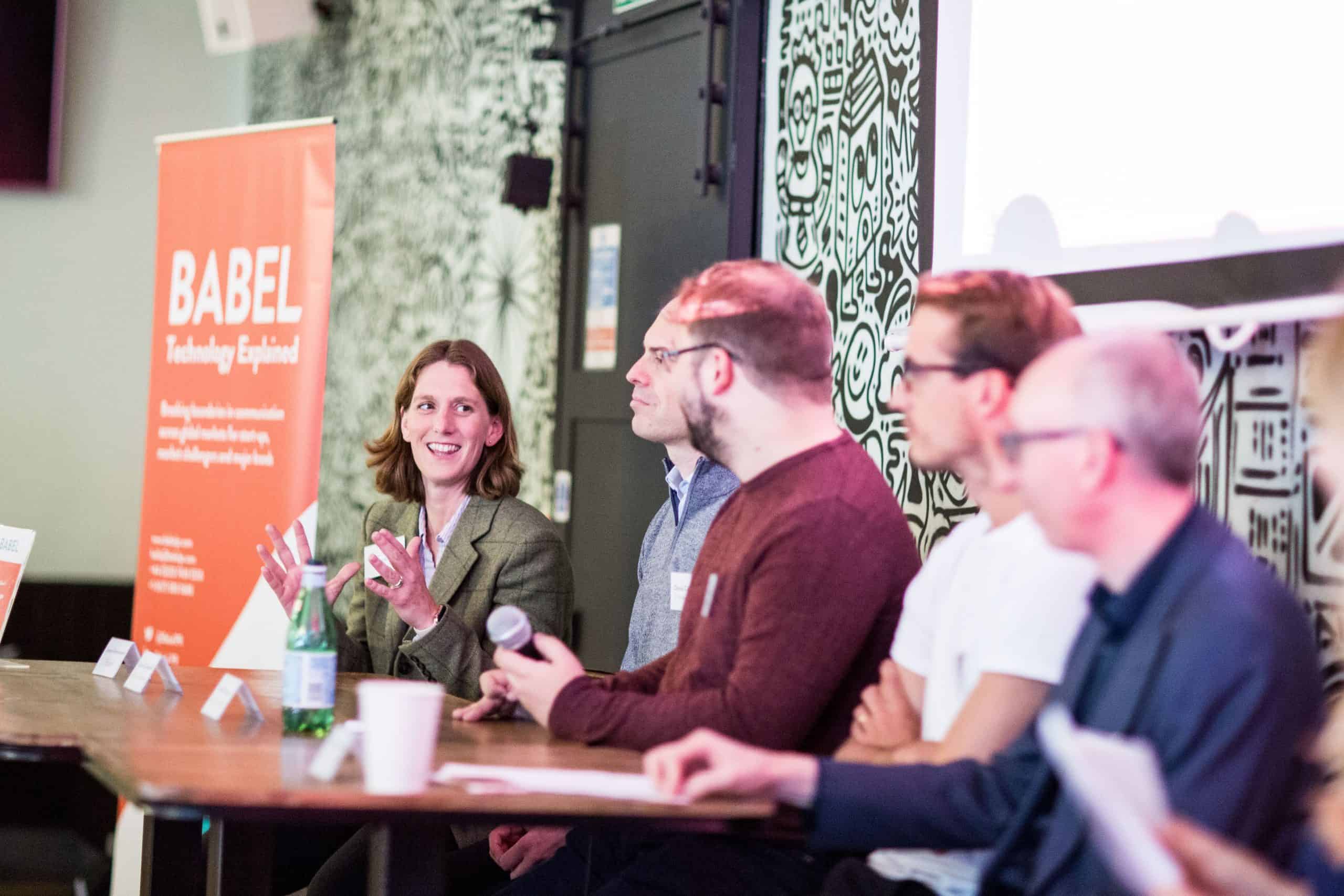
How to harness the media to grow your start-up: Insights from Babel’s London Tech Week panel
It’s no secret that the media landscape is changing. Editorial teams are shrinking, and journalists have ever-more demanding job roles, having to source and create their own digital content for online and social.
For a start-up business, that means it’s increasingly difficult to stand out from the crowd without existing brand equity and customer references. As a result, it’s harder to secure the vital third-party media endorsement that provides credibility, and supports growth strategies.
To address some of these challenges and more, Babel hosted an event during London Tech Week, where an expert panel gathered to share valuable insights on how start-ups can harness the power of the media to grow.
The morning encompassed top tips and a question and answer session, followed by ‘start-up speed dating’ clinic. Here, attendees had the opportunity to sit down with panellists and members of Babel’s senior team to discuss some practices, techniques and tips on areas such as creating a winning ‘one-minute pitch’, developing compelling content, building a social presence, engaging with influencers and grasping storytelling (there was also time for pastries!)
The start-up story
Mastering messaging is as difficult to do as it is to say, and was highlighted by the panel as a crucial hurdle for start-ups. Jon Kingsbury, Head of Digital Economy and Creative Industries at the Knowledge Transfer Network stated “the world has changed massively in the last 10 years. The media are now looking for interesting companies, therefore the story is the most important thing.”
Unfortunately, not every start-up is brimming with expert storytellers, and as Matt Hughes, Senior Reporter for The Next Web, explained: “Nobody will write a story just because it exists.” One of the most crucial things for a new business to do is understand their own story first.
Matt is faced with between 200 and 300 pitches just from start-ups every day, which he described as “overwhelming.” He went on to say he is often met with pitches from clearly very intelligent C-level executives, but ones who are wearing multiple hats. This means “the basics of engaging the media are often neglected.”
So how do you know what makes a good story and overcome that hurdle?
According to Babel Director Joanna Timmermann, who drew on her communications experience during the discussion, the answer can often be found at home. She told attendees about ‘the granny test’. If you can explain your story to someone completely unrelated to the business – for example your granny – and they get it, the outside world will too.
Daniel Campbell, Managing Director of start-up Effective Space then added to this, discussing the positive impact media coverage can have on employees, which he believes are often a start-up’s most important stakeholders. He continued to explain that recruitment is a challenge for start-ups competing against the bigger players. Alongside current employees, potential recruits want to know who they might work for, know that story, and become a part of that story, making PR a valuable tool for early stage companies as they look to grow their teams.
But it’s not just the media that are interested in your story, so too are investors, or as Alexis de Vienne, Co-Founder and Partner at Annection, calls them “hitchhikers with a credit card.” Investors also want to know you have a clear story, and they want to know the team behind the business as well. “I’ll often go to the last page of a creds deck and read about the team first” stated Alexis.
Our experts ultimately all agreed: “People buy from people,” so being able to succinctly tell the story behind the business is just as important as what the business does.
Navigating the field
Telling those stories expertly is a challenge, but one that a good PR agency can help a business overcome, and as Jon Kingsbury told those in attendance: “start-ups need specialists. That can mean an accountant or a lawyer, but you also need specialist storytellers.”
That’s often easier said than done though, and knowing when and how to bring in expert outside consultancy is key.
Babel Director Jo noted “it’s all about your objectives, your business growth plan and what you’re trying to achieve.” This was further endorsed by Alexis de Vienne, who explained that “PR should be targeted to a specific purpose and end-goal.”
For Daniel Campbell, one key goal for Effective Space’s PR campaign was to boost market visibility and promote a customer win, showcasing a major endorsement for the company’s technology. Daniel believes PR is something all start-ups need to allocate budget for, and for him, has been “money well spent.”
“We’re now at a point where if our multi-million-pound competitors are mentioned in an article, so are we.”
Daniel advised the innovators in the room: “as soon as you can, find experts for methodology, relationship building and to help with your message.”
This led into the speed dating session, where attendees were given advice on everything from content creation to phone intonations, investor conversations and media relations. It can be a dizzying thing to think about for a small business, but as Jon Kingsbury summarised: “Experts help you navigate the field.”
To find out how PR and communications can support your start-up’s growth strategy please get in touch.





